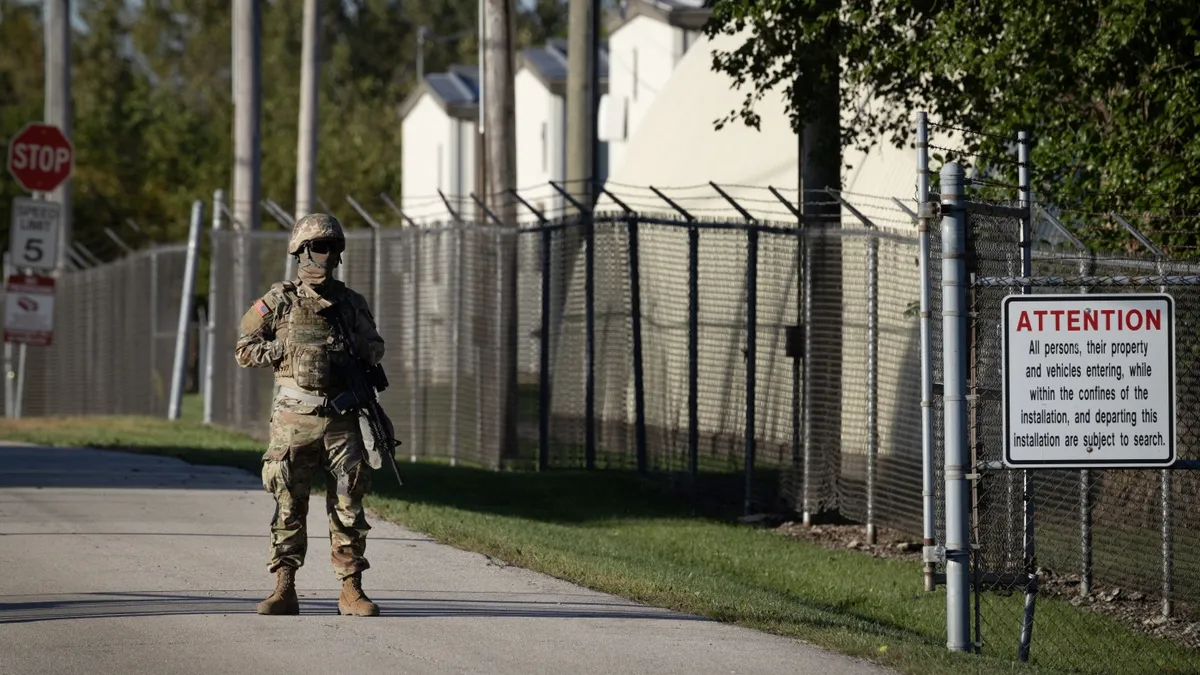
President Trump's recent decision to federalize and deploy National Guard troops to both Oregon and Illinois is currently undergoing a series of legal challenges, including a significant case at the Supreme Court. These legal disputes could reach a resolution in the coming days, and they center around whether the President's assessment of lawlessness in major cities, specifically Portland and Chicago, justifies military intervention despite opposition from local leaders and law enforcement.
The deployments of the National Guard were conducted against the explicit wishes of the Democratic state governors of Oregon and Illinois. Initially, these actions were temporarily blocked by district courts. A recent ruling from a divided panel of the 9th Circuit Court of Appeals overturned one of these temporary restraining orders in Portland, siding with the Trump administration. However, another temporary restraining order remains in effect.
Moreover, just days prior, the 7th Circuit Court of Appeals upheld a similar block regarding the deployment of troops to Chicago. The Trump administration has since requested that the Supreme Court intervene in these matters. As the legal landscape continues to shift rapidly, experts suggest that the outcome of these cases may influence how courts interpret similar situations in the future. Scott R. Anderson, a fellow at the non-partisan Brookings Institution, emphasized that this week could be pivotal regarding the broader legal implications of domestic military deployments.
The recent decision by the 9th Circuit only applies to one of the two temporary restraining orders issued by U.S. District Judge Karin Immergut. This means that, for now, National Guard troops are still prohibited from patrolling the streets of Portland. The federal government is seeking to have the second temporary order lifted, and a court hearing is scheduled for Friday to discuss this matter. There is also potential for the 9th Circuit to revisit its ruling with a larger panel of judges, which could occur before Immergut's deadline.
President Trump has expressed that the 9th Circuit's ruling has given him the confidence to deploy the National Guard to any city he deems necessary. "I can send the National Guard if I see problems," he stated on Tuesday, highlighting his renewed interest in potentially sending troops to cities like San Francisco.
Legal experts, such as Justin Levitt, a law professor at Loyola Marymount University, have raised concerns over the implications of the 9th Circuit's ruling. He argues that the decision could set a dangerous precedent where the President could declare a state of emergency without sufficient justification. Levitt warns that this could lead to a disturbing trend of the judiciary being overly deferential to the President's assertions.
Simultaneously, the Trump administration has filed an emergency appeal to the Supreme Court regarding the deployment of National Guard troops in Illinois, following the 7th Circuit's decision to uphold a district court's block. The timeline for a Supreme Court ruling remains uncertain, but experts anticipate a decision in the near future. While this ruling may not set a legal precedent, it is expected to clarify the extent of presidential power in deploying federal military resources and the level of deference that courts should exhibit toward the administration's claims.
According to Chris Mirasola, a national security law professor at the University of Houston Law Center, emergency decisions typically lack detailed reasoning, leaving lower courts to interpret the implications of these interim orders. This situation could lead to even more legal confusion in the near term.
The outcomes of these ongoing legal battles will directly affect troop deployments in Portland and Chicago. However, the broader implications of a Supreme Court ruling could influence future litigation across the country. Elizabeth Goitein, senior director of the Liberty and National Security Program at the Brennan Center for Justice, expressed concern that the Justice Department's celebration of high arrest rates in cities like Chicago, juxtaposed with the need for military presence, could lower the threshold for military deployment. This raises critical questions about the criteria for such decisions.
As these legal challenges unfold, experts agree that we are only at the beginning of a complex and evolving legal journey through the U.S. court system regarding the use of military resources in domestic situations.